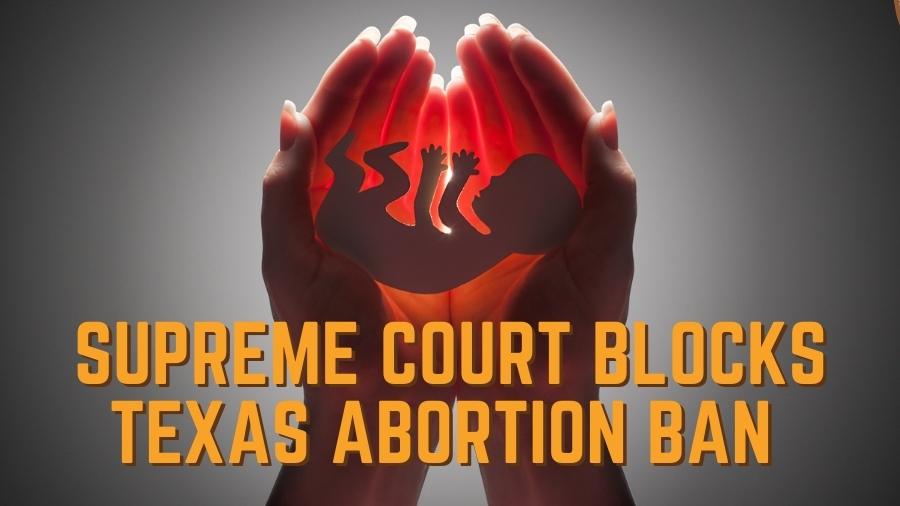The Anti-Abortion movement in the state of Texas celebrated a milestone victory after the supreme court did not block the new anti-abortion law that denies the freedom to most women to opt for abortions. Abortion services across the state will have to stop the services of providing clinical abortion at immediate effect since the passing of the law.
Texas Abortion Ban Takes Effect
After a long debate, the ban has come into order implying its power across the state of Texas. This new law prohibits the action of abortion of the foetus as early as six weeks. This is quite a tricky time as most women often are not aware of their own pregnancy when a foetus is six weeks old. The law also grants the power to any individual across the state to sue any individual who has opted for the procedure of abortion. The law also deputizes every individual to take legal action against anyone who has aided in the process of abortion. Texas’ ban has one of the unusual features which has resulted in the lack of certain legal challenges. that leaves enforcement up to individual citizens. An individual who could help in the identification of such illegal abortions could receive cash bounties of at least $10,000 for launching successful lawsuits against women who seek abortion after the sixth week of pregnancy or those who aid them in the process.
The Texas law was signed by Greg Abbott, a Republican Governor in May. The Heartbeat Act or so it is famously known as bans abortion after the detection of what pro-life and anti-abortion campaigners call a foetal heartbeat. It is Senate Bill 8 of the 87th legislature. It is one of the most stringent laws against abortion rights in the U.S since the high court’s landmark Roe v. Wade case in 1973. Since then Republicans nationwide have been pushing the cause of banning abortions and imposing new restrictions on abortion. More than 12 other states have legislated bans early in pregnancy, but they all have one thing in common – all of them had been blocked from going into effect.
Texas Abortion Act
The act of Abortion was illegal in the state of Texas in the 1900s. However, a therapeutic exception was included in the year 1950. Texas also passed a parental notification in the early 2000s. A mandatory ultrasound bill was passed in the year 2007. Texas also started funding women reproductive programs — but did not include abortion in the list. The state also cut off all funding to facilities that provided the service of abortion. The number of reproductive and abortion clinics from 128 in 1982 to 19 in 2016.
The bill was passed in the court by a 6-3 majority. With a vote of 5-4, the Justice prohibited the emergency for an injunction request put forth by women’s rights activists and health providers. Three liberals and one conservative judge joined together to vote for the law.
“Presented with an application to enjoin a flagrantly unconstitutional law engineered to prohibit women from exercising their constitutional rights and evade judicial scrutiny, a majority of justices have opted to bury their heads in the sand”, justice Sonia Sotomayor dissented.
Having said that, with the action of the law, a sense of responsibility is expected to revoke amongst the people of the state to ensure that unwanted pregnancies are avoided at all costs. More awareness campaigns sharing intrinsic knowledge about teen pregnancies, contraceptives, and topics from similar niches have been aligned for the people of Texas.
Table of Contents







Add Comment